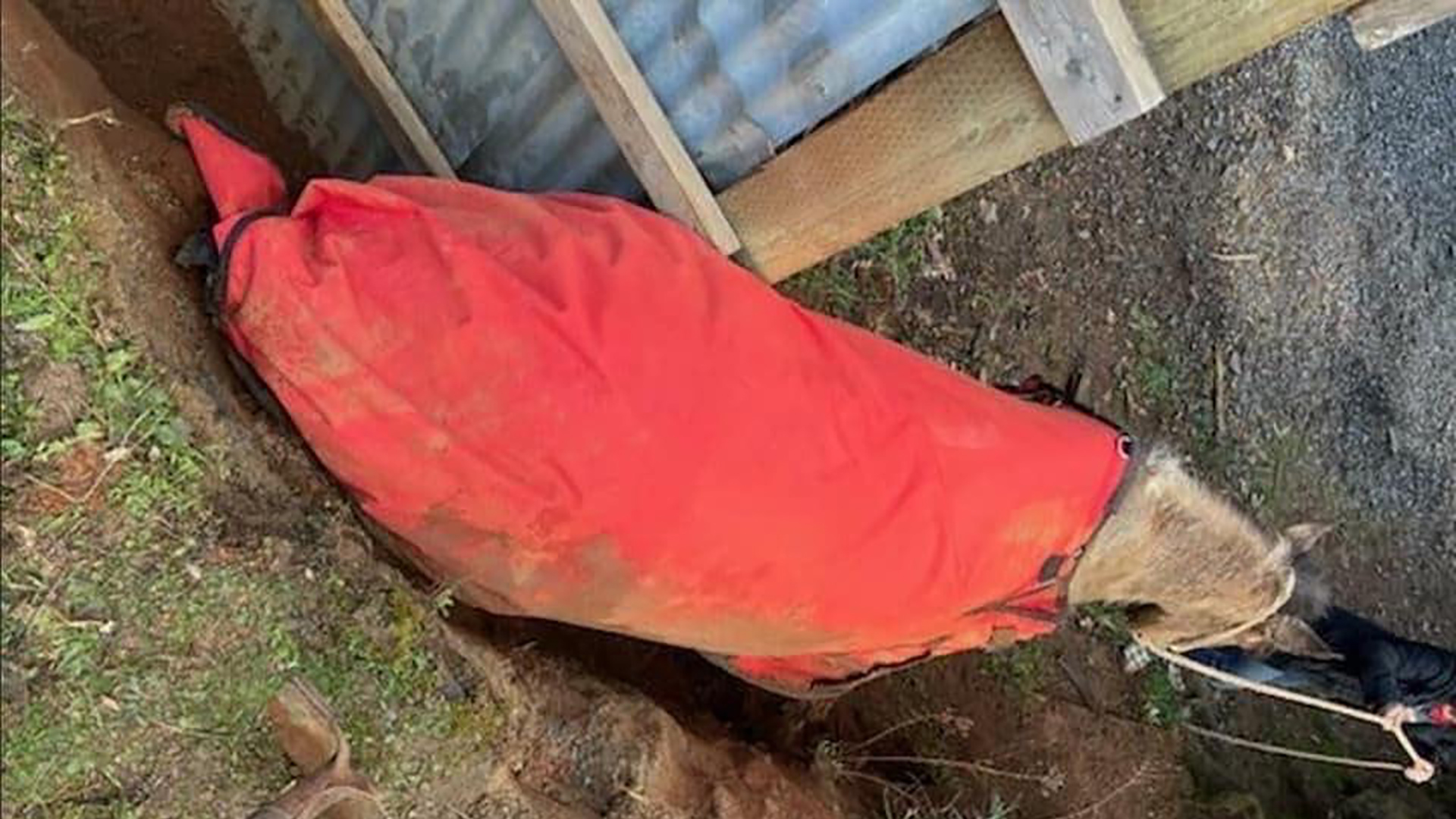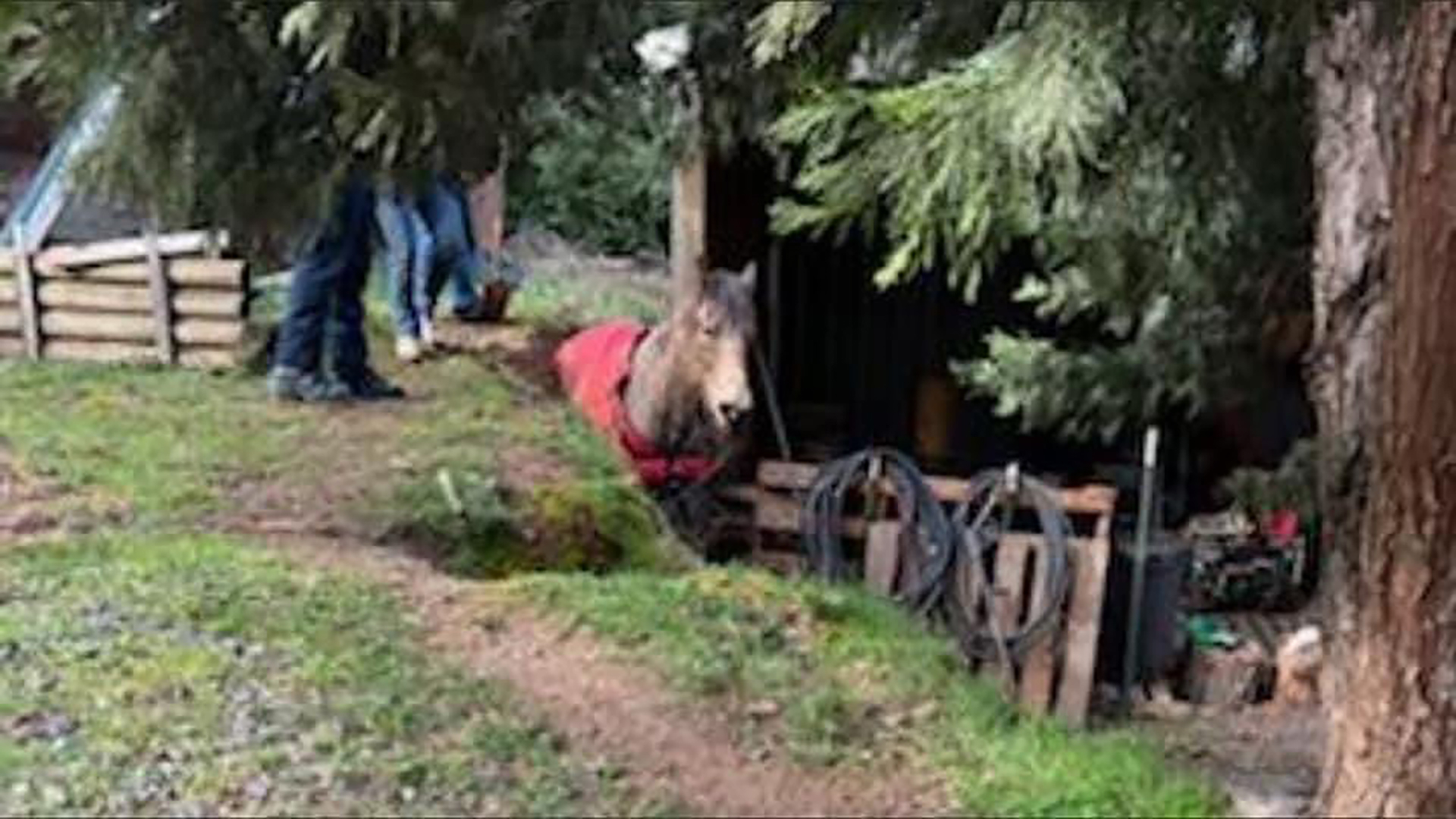No Horsing Around
March 15, 2022
Rural Metro Firefighters in Oregon use special training to rescue a local farm animal.
The residents in Wilderville, Oregon take pride in their scenic byways and year-round great weather. In fact, the small community in Josephine County is not too far from a UNESCO World Heritage site—the Redwood National and State Parks.
The rich and fertile land in Wilderville makes it a perfect environment for farm living, and with farm living, comes farm animals. This is one of the reasons Rural Metro Fire in Josephine County trains its firefighters in large animal rescues.
“Based on the diverse rural community that we serve, this training is highly important to our success in removing animals that may get trapped in some of the spots that are a part of our environment,” said Fire Lieutenant Mitchell Kuntz, who, on February 21, had to put some of that “training” into action when his team received a call about a horse in a bind.
“The call came from an owner of a private property with a small barn that houses animals,” said Kuntz, who went on to elaborate that the owner’s quarter horse, “Peanut,” found himself wedged between the barn and a cut bank on Ingalls Lane.
“When we arrived at the property, the front legs and torso of the horse were free. It was the rear of the horse that was still stuck between the cut bank and barn. We recommended to the property owner that a halter be applied to the horse,” said Kuntz. “While that occurred, my engineer, Jeremy George, performed some minor digging around the rear legs of the horse and with some tugging of the halter by the owner, the horse was freed.”
The rescue took a total of 15 minutes to complete from the initial call to Peanut’s full release. Kuntz says Peanut’s owner, who was extremely appreciative of the rescue, also played a major role in safely extricating his 32-year-old horse from the tight space, partly because the owner knew when to call Rural Metro Fire for help.
“The training offered to Rural Metro Fire has been provided in the past on a regional level involving multiple participating agencies,” said Kuntz. “It revolves around the removal of large animals and ways we can pull them out of harm’s way in a timely fashion with the tools we may have at our disposal.”
Kuntz and other Rural Metro Firefighters leaders encourage local residents to call Rural Metro Fire when their animals get into predicaments that require specialized assistance. And as for Peanut, he escaped his “predicament” with no injuries and is once again, enjoying his happy farm life, and hopefully, enjoying it away from the cut bank.
The rich and fertile land in Wilderville makes it a perfect environment for farm living, and with farm living, comes farm animals. This is one of the reasons Rural Metro Fire in Josephine County trains its firefighters in large animal rescues.
“Based on the diverse rural community that we serve, this training is highly important to our success in removing animals that may get trapped in some of the spots that are a part of our environment,” said Fire Lieutenant Mitchell Kuntz, who, on February 21, had to put some of that “training” into action when his team received a call about a horse in a bind.
“The call came from an owner of a private property with a small barn that houses animals,” said Kuntz, who went on to elaborate that the owner’s quarter horse, “Peanut,” found himself wedged between the barn and a cut bank on Ingalls Lane.
“When we arrived at the property, the front legs and torso of the horse were free. It was the rear of the horse that was still stuck between the cut bank and barn. We recommended to the property owner that a halter be applied to the horse,” said Kuntz. “While that occurred, my engineer, Jeremy George, performed some minor digging around the rear legs of the horse and with some tugging of the halter by the owner, the horse was freed.”
The rescue took a total of 15 minutes to complete from the initial call to Peanut’s full release. Kuntz says Peanut’s owner, who was extremely appreciative of the rescue, also played a major role in safely extricating his 32-year-old horse from the tight space, partly because the owner knew when to call Rural Metro Fire for help.
“The training offered to Rural Metro Fire has been provided in the past on a regional level involving multiple participating agencies,” said Kuntz. “It revolves around the removal of large animals and ways we can pull them out of harm’s way in a timely fashion with the tools we may have at our disposal.”
Kuntz and other Rural Metro Firefighters leaders encourage local residents to call Rural Metro Fire when their animals get into predicaments that require specialized assistance. And as for Peanut, he escaped his “predicament” with no injuries and is once again, enjoying his happy farm life, and hopefully, enjoying it away from the cut bank.


